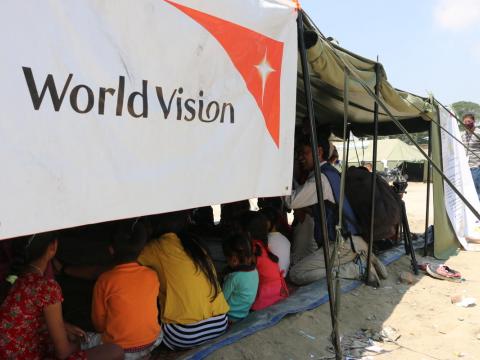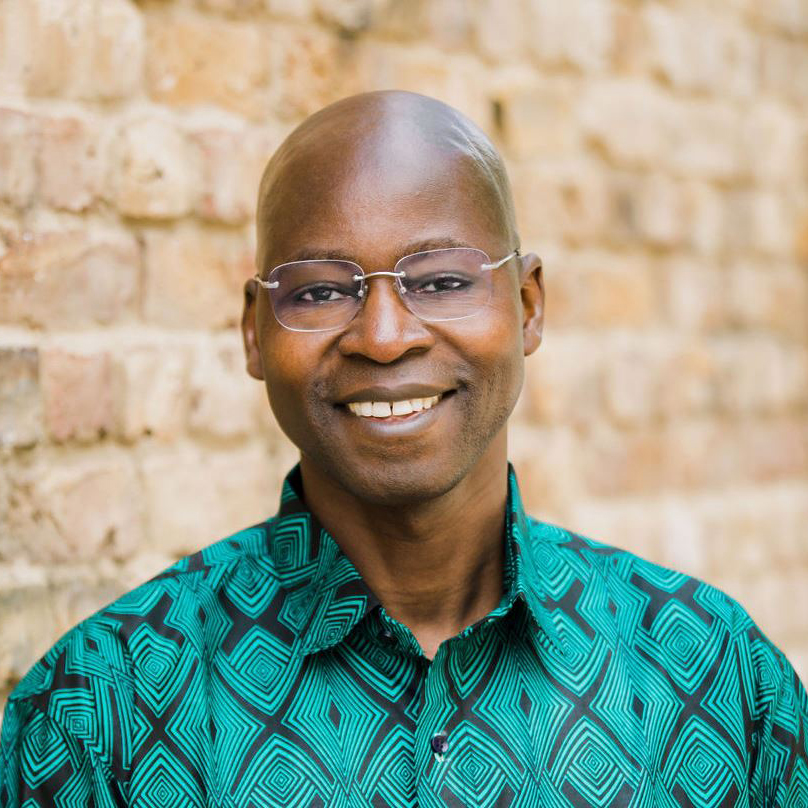
How can we help when we have no access?
By Dr Jean Baptiste Kamate (JBK)
It’s something we as humanitarians are all aware of. Everyone is talking about it. In a world where nearly 168 million people need humanitarian assistance, mainly as a result of armed conflict, our increasingly restricted ability to help them is one of the biggest issues we need to address.
But while everyone is talking about it, we aren’t tackling the problem. It’s like watching the evening news and doing nothing about it. We know the solutions are not in one single person’s hands. But if we don’t take steps to change things, who will?
While poverty has always been part of my life, I first understood what it meant to be a humanitarian when working for the US Embassy in Bamako in 1990. Shortly after, I led my first emergency response for World Vision, in Northern Mali in response to conflict, and a major drought and food crisis. I had seen the effects of drought as a child, in the late ’70s and the mid ’80s – everyone knew about the famine in Ethiopia in 1984-1985, but it affected countries all over the Sahel, including my own. I had seen the effects of it up close, but this was my first time responding and being in a position to provide relief. The operating space was difficult because it was in an historically insecure area; we had a car taken at gunpoint, we lost assets and had to pause programming briefly because of the risk. We had to negotiate for access to people in need, particularly nomadic families, and when we got it we spent weeks living with them – surviving on camels’ milk and dates – as we addressed malnutrition, set up clean water and sanitation projects, responded to other health needs and established livelihoods projects.
In the nearly 30 years since then, humanitarian needs have grown exponentially but our ability to reach and respond to them is under increasing threat. This is a situation we simply cannot sustain. We have to do something about it, and right now. Doing something about it now means allowing humanitarian and development organisations like World Vision to do our work.
The space in which we operate is both physical and metaphorical. It is the area around us, and the safety afforded us, as we respond to the needs of those affected by floods, conflict, COVID-19, droughts, earthquakes; the disasters that take and ruin lives. But it is also the room we have to speak out about what we see happening, and what needs to change for children. As an organisation dedicated to realising hope, joy and justice for all vulnerable children, it is vital that we can do both of these things in safety, without personal or political restrictions or repercussions. This is a right afforded to us by international law, and it’s one we take seriously.
In 2018, 131 aid workers were killed and 130 were kidnapped in 400 attacks. But the effects of the shrinking humanitarian space go far beyond the deaths and injuries of our colleagues. They include being completely unable to get through to people cut off when they are most in need; spending days, weeks, sometimes months, negotiating access to the places we know we need to go, begging those in charge to let us do what we exist to do; false starts and expensive changes; lack of visas for our staff to get on or off planes; lack of permits to bring relief goods in; exhaustion and frustration; an inability to speak about what we witness.
According to the UN’s latest Global Humanitarian Overview report, we are seeing increasing restrictions on operational space, and increased danger in accessing places like Gaza and the occupied Palestinian territories, Niger, Democratic Republic of Congo, Yemen, and Pakistan. These issues are not new, but I believe they are getting worse.
Is this simply the cost of doing business? Something we have to accept as a reality of the complex world we operate in? It should not be.
The help we provide follows the humanitarian principles of humanity, impartiality, neutrality and independence. Our work is not political nor do we allow it to be used to further political positions or parties. As an organisation, we have no affiliation with any government or political movement, we have no political agenda, we have strong accountability mechanisms. We respect local authorities, we respect their role and their space. We are not a threat to them – on the contrary, we are contributors to stability in the different places where we work. When permitted to respond the way we were created to, we contribute to creating space for dialogue and peace.
Here is what I know: if we don’t do what we exist to do, someone else will have to and the price will be higher, the expertise won’t be there, and it won’t be done in time to save and change lives.
As Mother Teresa said, the fruit of service is peace. Letting us serve, allowing us to work as humanitarians in the places where people are most in need and in pain, will contribute to the peace and future that every child deserves. This must be something we unite around.
JBK is World Vision's Partnership Leader for Global Field Operations. Follow JBK on Twitter @jb_kamate

